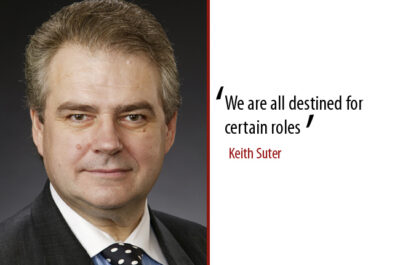The secrets to REST’s success at top of ratings
Jo Townsend … “REST remains a firm believer in active management”
REST Industry Super, one of Australia’s largest super funds, has also been a top performing fund in the SuperRatings analyses for the past several years. Jo Townsend, the fund’s general manager of investments, spoke to the ratings agency for this report. Townsend thinks that it’s REST’s core beliefs that have been crucial to its success.
While REST’s investment managers have certainly contributed to outperformance relative to peers over the longer term, it was a number of brave asset allocation decisions taken during the global financial crisis that really pushed the fund to the top of SuperRatings’ performance tables and has allowed it to stay there.
In simple mathematical terms, a $100,000 investment in REST’s Core Strategy option 10 years ago would have grown to $221,927 (8.3 per cent a year) by the end of February, while the median fund would have grown to $195,345 (6.92 per cent) and the poorest performing fund a not-so-strong $154,896 (4.42 per cent).
Jo Townsend says: “REST’s true focus is on the delivery of long-term real returns to REST members… Along the way, parts of the industry continue to focus on fees, resulting in cost cutting through more passive investment strategies. REST remains a firm believer in the benefits of active management over the longer term. This active approach is both in terms of the investment managers that are used and the way in which the asset allocation for the Core Strategy is managed.”
Townsend explains a simple but highly beneficial example of REST’s active strategy at work: “The thinking around the current asset allocation for the Core Strategy (equivalent to mainstream balanced options) had its origins in the very stressful market conditions that existed in 2008/2009, at which time REST took advantage of the opportunity to increase its exposure to overseas equities at very attractive valuations. This involved putting in place an overweight position in overseas shares compared to Australian shares. A key element of this positioning was to slowly build up the allocation to overseas equities on an unhedged basis which also reflected the view that the Australian Dollar was expensive”.
This decision paid off in 2013, as the falling Australian dollar buoyed the value of the fund’s international investments. Overall, the benchmark MSCI World Accumulated Index, with gross dividends, recorded a 49.19 per cent gain in 2013 alone and resulted in a key contribution to REST’s performance.
To reinforce the active argument, Townsend says: “In terms of manager performance, over the past 10-plus years REST has been able to add 3 per cent a year to returns for Australian shares and 2.5 per cent a year for overseas shares (after the payment of all active investment management fees). Given that these are the two largest asset classes, this level of additional return adds meaningful value for REST members”.
What is clear throughout the industry is that those funds which have used a more active asset allocation have soundly outperformed those who have continually rebalanced their portfolios back to a pre-set asset allocation.
Kirby Rappell, research manager at SuperRatings, says: “It is argued that asset allocation decisions drive up to 80 per cent of outperformance within portfolios. So it makes sense that super funds adopt an active approach to management if they want their long-term performance to sit anywhere but median or below…. In reality there is an expectation from many members that funds are actively managing their assets rather than adopting a set and forget approach”.
Aside from the traditional asset classes, REST is also prepared to look outside the box. Townsend says: “Back in 2008, REST also was able to capture the opportunity to establish a new asset class in credit securities which had been issued primarily in the US. This asset class has been one of the best performing for REST Industry Super members since it was established”.
Although the fund remains focused on long-term returns, shorter-term performance has also been positive for REST. The fund currently ranks first out of 50 funds in the SuperRatings SR50 Balanced (60-76) Index over a three-year period to February 2014, and third over a one-year period.
In terms of shorter-term performance, the value add from manager performance has been a positive contributor. In terms of asset allocation, the biggest contributor has been the overweight position to overseas shares on a largely unhedged basis, but we have also seen strong contributions from our allocations to both the infrastructure and credit asset classes.
So, overall it is clear that REST has been prepared to take an active role in their asset allocation, something many funds have been reluctant to do. Sometimes this reluctance is because the fund is marketed as a ‘true to label’ option, which means assets are rebalanced either daily or weekly to a pre-determined asset mix, or on other occasions it is because funds are not prepared to pay for active management. In extreme circumstances, funds adopt a set and forget strategy as they do not wish to take any “business risk” which could see them potentially underperform if they get the decisions wrong. In other words it’s the IBM decision.
REST, which has more than $25 billion in assets and two million members, is advised by JANA Investment Advisers. This profile was first published by SuperRatings.










